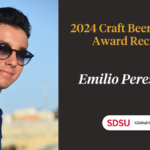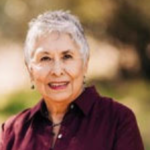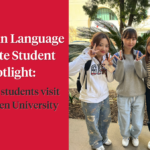 Oscar Neto has a dream to eliminate poverty in his home country of Brazil. Thanks to the groundbreaking Social Entrepreneurship certificate program at San Diego State University’s American Language Institute, Neto’s dream has every chance of becoming a reality.
Oscar Neto has a dream to eliminate poverty in his home country of Brazil. Thanks to the groundbreaking Social Entrepreneurship certificate program at San Diego State University’s American Language Institute, Neto’s dream has every chance of becoming a reality.
Social entrepreneurship focuses on creating businesses that solve social problems. Examples include TOMS Shoes, which matches every pair of shoes purchased with a pair of new shoes for a person in need; and VisionSpring, which sells deeply discounted ready-made reading glasses to people in the developing world.
“We have a great environment to create a program like this,” said Kelly Shah, ALI program director, noting that SDSU was ranked No. 18 by FORBES on its list of America’s Most Entrepreneurial Universities.
Designed for students with high-intermediate to advanced English-language proficiency, the program is completely unique in that no other university offers social entrepreneurship in combination with English-language instruction. Students gain enhanced English proficiency, a marketable skill, and an international framework for a business plan.
Comprised of 16 international students from Burundi, China, Korea, Japan, and Taiwan, the program’s first-ever cohort of students graduated in February 2015. Via case studies, guest speakers, on-campus resources, and field trips to actual SE businesses, they studied business trends and innovative entrepreneurships, and developed business plans to make the world a better place.
 “It was a very inspiring program,” said student Alison Kaneza from Burundi. “Each day, we learned about experiences of other entrepreneurs. It gave us ideas to know exactly what we should do in the future.”
“It was a very inspiring program,” said student Alison Kaneza from Burundi. “Each day, we learned about experiences of other entrepreneurs. It gave us ideas to know exactly what we should do in the future.”
“This particular group of students instantly created a family and [was] able to share ideas and form partnerships whether they were from the same country or different countries,” said ALI instructor Christina Lorimer.
Student Jean Vincent of France marveled at the simplicity of the social entrepreneurship concept. “It’s like helping people on this side and doing [your] business on the other side. You can do both at the same time. That’s the great point,” he said.
Neto of Brazil was similarly impressed. “That we can actually give a chance for those who are in need, that’s just amazing. And you can do that pretty easy.”
The Social Entrepreneurship program includes membership in the SDSU Entrepreneur Society where ALI students can interact with their American counterparts. They also have access to the Zahn and Lavin entrepreneurial centers on main campus, both of which host competitions and notable guest speakers.
Student Shao-Yu Fang’s goal is to upgrade the level of the mushroom industry in his native Taiwan. “They don’t have knowledge, training or modern equipment,” said Fang. “Ninety-five percent of mushroom farmers fail in Taiwan.” His Amo Mushroom company would assist underprivileged mushroom farmers by upgrading their skills and equipment. Additionally, Amo would offer cultivation bags, also known as strain bags, in which mushrooms are grown, at 10 cents per unit versus the current $3 per bag.
 Hiroka Nagata created a business model for connecting abandoned pets with potential owners in her native Japan, where 200,000 abandoned dogs and cats are euthanized every year.
Hiroka Nagata created a business model for connecting abandoned pets with potential owners in her native Japan, where 200,000 abandoned dogs and cats are euthanized every year.
Jia-Siang (Ian) Guo of Taiwan proposed a company called H&P (Happiness & Peaceful) which would donate one box of machi—a dumpling-like dessert—to an underprivileged child for every box purchased. Aesthetically flawed (but equally delicious) machi would also be donated.
Neto’s business model involves partnership with Kiva, a non-profit organization that gives any person the opportunity to lend as little as $25 to help create opportunity and alleviate poverty around the world.
“I want to get back to my country and change things for the better,” he said.
Thanks to SDSU’s Social Entrepreneurship program, 16 students are now equipped to do exactly that, in countries all over the world.
“I’ll recommend this program to all of my friends,” said Kaneza from Burundi.




